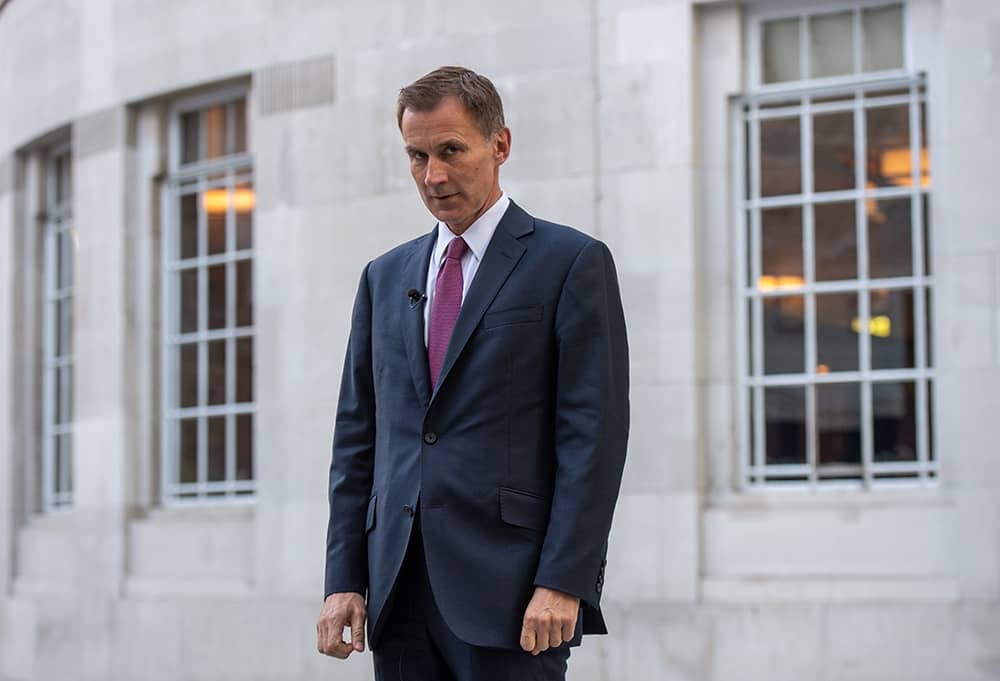This morning on the media round, Jeremy Hunt followed in the footsteps of Tory chancellors before him warning about the ‘very difficult decisions’ that lie ahead. The new chancellor’s language and tone could easily be compared to George Osborne after the financial crisis, explaining to the country why government spending needed to be curbed. Or to Rishi Sunak, towards the end of the crisis stage of the pandemic, who was constantly reminding MPs and the public about the ‘difficult times ahead’ due to the fallout from economic shutdowns and unprecedented peacetime spending.
The crucial difference, however, is that this new talk of spending cuts and higher taxes is in response to a crisis of the government’s own making. Yes, rising interest rates and costs for government borrowing are going up worldwide: but Liz Truss’s mini-Budget last month put the UK in the spotlight, and the UK’s borrow-and-spend agenda (which mirrors most Western countries right now) became most heavily punished by the markets.
So the new chancellor is working hard, and quickly, to shed the UK of its outlier position; to get markets, if not back on side, at least calmer than they have been in recent weeks. His comments this morning are clearly designed to take a lesson from (very recent) history, and not spook the markets over the weekend. Hours after the mini-Budget last month, the pound started falling and gilt yields started rising – but it was former chancellor Kwasi Kwarteng’s comments on the Sunday about going even bigger and bolder with unfunded tax cuts that saw the pound drop to its lowest level against the dollar on record the next day, and set government borrowing costs soaring to the point when the Bank of England had to intervene.
Yesterday, after the Prime Minister’s announcements, gilt yields started rising again. Hunt will be desperate to avoid a repeat of last month’s debacle, and his language this morning represented a clear break with former defiant attitudes, insisting that what ‘the country needs now is stability.’
But this stability now comes at a very hefty price. For all the trouble Truss’s mini-Budget has caused the economy, her original fiscal plans brought the tax burden – currently at a 72-year high – back down to 2021 levels. Not an especially dramatic reduction. But based on Hunt’s comments this morning, it seems the new fiscal strategy may take the tax burden even higher, as he bluntly stated that ‘some taxes will have to go up.’
Not only is this a clear break from the Trussonomics agenda guiding the government’s fiscal decisions over the past few months – it also raises questions about what this government’s new ‘pro-growth’ strategy will be. Truss has linked economic flourishing directly to tax breaks, for individuals and companies; she reneged on the latter yesterday in her pivot on corporation tax. If the whole tax narrative goes out the window, what will she say her new plan for growth is?
It is likely to be a question that goes unanswered until after the new chancellor gets through his ‘medium-term fiscal plan’ at the end of the month. But what’s in that plan – the tax updates, the spending cuts, the ever-changing incentives for businesses to invest – will play a large part in determining what the government does next. Hunt’s media round this morning suggested these decisions are increasingly out of the prime minister’s control.







Comments